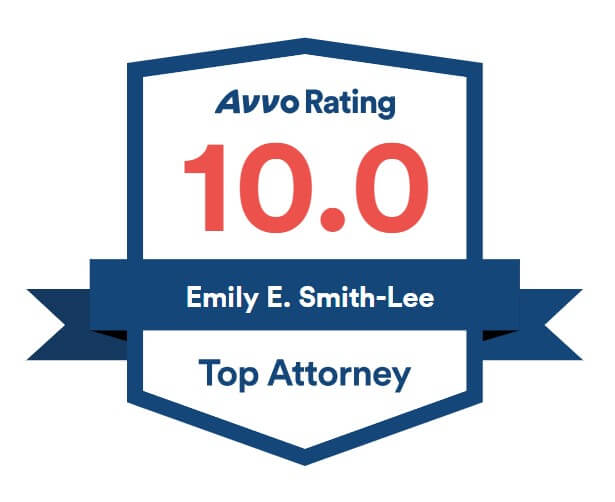The Massachusetts Wage Act and Late Payment of Wages
Late Payment of Wages in Massachusetts: Understanding Your RightsLate wage payments can be frustrating, but as an employee in Massachusetts, you have rights and protections in place. Both federal and state laws, such as the Fair Labor Standards Act and the Massachusetts Wage Act, ensure that you receive your earned wages, commissions, and accrued vacation pay on time. Delayed payments, often referred to as "wage theft," are legally unacceptable, as your hard-earned wages belong to you.
When Should You Receive Payment of Wages?In Massachusetts, employees are generally entitled to receive their wages either weekly or biweekly, with specific exceptions based on collective bargaining agreements or other arrangements.
Regardless of the pay period, your employer is obligated to pay you within six days following its conclusion. For example, if you are paid every other week for work done from Monday through Friday, your wages should be in your hands by the following Thursday. The same rule applies to monthly payments for services rendered in the previous month. Your Final Paycheck After TerminationIf you leave your job voluntarily, your employer must provide you with your earned wages on the next regular payday.
In cases of termination, your final paycheck, which should include payment for any accrued but unused vacation time, must be handed to you on the same day as your termination. It's essential to note that your final paycheck, along with any vacation pay or PTO payout, is rightfully yours, whether or not you choose to sign a severance agreement. As long as your employer withholds this payment, they are violating the Massachusetts Wage Act. Ensuring Your Final Paycheck Is CompleteUpon receiving your final paycheck, it's crucial to verify that it includes all the wages you're owed. This should encompass payment for all hours worked during the pay period, including time-and-a-half for any hours exceeding 40 in a week if you are a non-exempt employee. Commissions earned before termination, as well as specific travel time if your job necessitates moving between worksites during the day, should also be included.
Know Your Rights When Payment Is DelayedFirst, understand that you have the right to discuss payment issues with your employer without fearing retaliation; it is unlawful for them to take any punitive actions against you for asserting your wage and hour rights. Furthermore, your employer may not even be aware of the problem. In some instances, payroll errors or misunderstandings could be the cause of late payments, and these can usually be rectified swiftly.
However, if addressing the issue directly with your employer doesn't yield results, there are steps you can take. The process typically starts with filing a formal complaint with the Massachusetts Attorney General's Office. They will either investigate your complaint or provide you with a "right to sue" letter, granting you the right to file a civil lawsuit to recover your unpaid wages. |
We're Here to Help.OR
|
Questions About Unpaid or Late Wages?
Our Solutions Roadmap is a quick and easy way to share the details of what you are facing and receive preliminary feedback from a member of our team. Use the button below to get started- it is 100% confidential and 100% free.
What if You Are Fired for Raising a Wage Complaint?
Although this should not happen legally, there are instances where employees face repercussions for raising wage complaints. If your employer takes any adverse action against you due to your wage and hour complaint, you may have a valid claim for wrongful termination. Therefore, it's vital to document your complaint to your employer, whether through email or written records.
The Cost of Pursuing Late or Unpaid Wages
Many employees worry that they lack the resources to take legal action against their employer for unpaid wages.
The good news is that wage and hour laws account for this concern. If you successfully prove that you are owed unpaid wages, your employer will be required to cover your reasonable attorney's fees and costs.
Moreover, state and federal laws acknowledge that people might not pursue their rights when dealing with small amounts of money owed, so they provide for additional damages in such cases. In Massachusetts, courts are mandated to award three times your actual damages, making it easier to pursue your rights.
The good news is that wage and hour laws account for this concern. If you successfully prove that you are owed unpaid wages, your employer will be required to cover your reasonable attorney's fees and costs.
Moreover, state and federal laws acknowledge that people might not pursue their rights when dealing with small amounts of money owed, so they provide for additional damages in such cases. In Massachusetts, courts are mandated to award three times your actual damages, making it easier to pursue your rights.
What if the Employer Can't Pay?
Occasionally, late wage payments are due to financial difficulties within a business. While this doesn't excuse non-compliance with wage and hour laws, it can complicate the process of collecting unpaid wages. Massachusetts law takes this into account, allowing you to bring your wage and hour claim against the company and certain individual officers if necessary. This safeguards your right to the wages you've earned, even if the business itself closes down.
Meet Our Employment Lawyers

Emily Smith-Lee is the owner and founder of slnlaw. She is a 1996 graduate of Boston College Law School. She was previously a partner at the Boston office of a large international firm, where she worked for thirteen years before starting the firm that became slnlaw in 2009. She has been recognized as a Massachusetts Superlawyer each year since 2013, and in 2018 earned recognition as one of Massachusetts Lawyers Weekly's Lawyers of the Year. She has written a book on employment law: Rules of the Road, What You Need to Know About Employment Laws in Massachusetts, and helped thousands of clients on both the employee and employer side with issues relating to wage and hour laws, including overtime pay, late or unpaid wages or commissions, employee misclassification, and retaliation against employees asserting rights under the wage and hour laws.

Rebecca Rogers: Rebecca is a 2006 graduate of Boston College Law School, and has worked with slnlaw since 2013. She previously worked as an intellectual property litigation attorney for Fish & Richardson in Boston, Massachusetts, and clerked for the Massachusetts Supreme Judicial Court. Rebecca has helped clients with wage and hour disputes, including employee misclassification, late or unpaid wages or commissions, retaliation under the Wage Act, and advice to both employees and employers about wage and hour law compliance.

Jenna Ordway: Jenna is a 2013 graduate of Quinnipiac Law School, and also earned an LLM in Taxation from Boston University in 2015. She has been affiliated with slnlaw since 2011, first as a law clerk and then as an attorney. Jenna has been recognized since 2019 as a "Rising Star" by Massachusetts Superlawyers. Jenna has helped clients assess their rights under the wage and hour laws, including employee misclassification, untimely payment of final wages, late or unpaid commissions, retaliation, and advice to small business owners about wage and hour law compliance.

Elijah Bresley: Eli is a 2014 graduate of Seton Hall Law school, and has worked with slnlaw since 2020. He previously worked for a boutique employment law firm outside of Boston, and then for the Labor and Employment department of a large Boston firm. He also spent a year clerking for the judges of the Superior Court in Hartford, Connecticut. Eli has helped clients with wage and hour claims, including late or unpaid commissions, retaliation, employee misclassification, and overtime, and litigated these claims in state and federal courts. He also advises employers about employment policies and wage and hour compliance.

Sharleen Tinnin: Sharleen is a 2010 graduate of Northeastern University School of Law, and has been with slnlaw since 2023. Prior to joining slnlaw, she worked with King, Tilden, McEttrick & Brink, P.C. on complex civil litigation matters. She previously worked for the United States Department of Justice, and received an "Excellence in Justice" award in 2017. Sharleen has helped clients with multiple wage and hour issues, including retaliation, misclassification, and late or unpaid wages or commissions, and litigated these claims in state and federal courts.
How We Can Help
If an employer withholds your wages, it’s a serious offense that not only breaks the law but causes stress and anxiety for you. This is why the laws are so strict, and impose such severe penalties on employers. The law recognizes that all workers depend on their wages to live their own lives, pay their bills, and take care of their families.
We can help you protect those rights and recover the money that is owed to you. You can use the button below to schedule a call back from a member of our team, or give us a call at 781-784-2322.
We can help you protect those rights and recover the money that is owed to you. You can use the button below to schedule a call back from a member of our team, or give us a call at 781-784-2322.
|
Emily Smith-Lee Rated by Super Lawyers loading ... |
Jenna Ordway
Rated by Super Lawyers loading ... |


